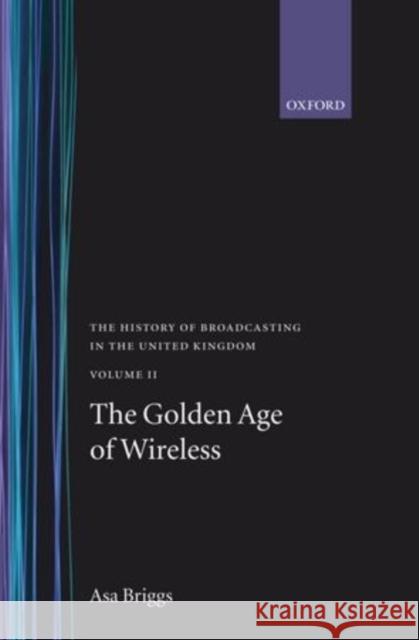History of Broadcasting in the United Kingdom: Volume II: The Golden Age of Wireless » książka
History of Broadcasting in the United Kingdom: Volume II: The Golden Age of Wireless
ISBN-13: 9780192129307 / Angielski / Twarda / 1995 / 672 str.
History of Broadcasting in the United Kingdom: Volume II: The Golden Age of Wireless
ISBN-13: 9780192129307 / Angielski / Twarda / 1995 / 672 str.
(netto: 911,74 VAT: 5%)
Najniższa cena z 30 dni: 933,89
ok. 30 dni roboczych
Bez gwarancji dostawy przed świętami
Darmowa dostawa!
This is the second part of a projected four-volume history of broadcasting in the United Kingdom.
This volume covers the period from the beginning of 1927, when the BBC ceased to be a private company and became a public corporation, up to the outbreak of war in 1939. The acceptance of wireless as a part of the homely background of life and the acceptance of the BBC as the natural' institution for controlling it distinguish this period from that covered in the earlier volume. From 1927 to 1939 the system of public control which had evolved from the early struggles was never seriously in jeopardy and the one big official inquiry, the Ullswater Report, favoured no major constitutional changes. The main theme of the second volume, therefore, may be called the extension and the enrichment of the activity of broadcasting. Different chapters deal with the programmes and programme-makers; the listeners and the ways in which their needs were (or were not) met as the system expanded; public attitudes to the BBC and the increasing complexity of its control and organization; the coming of television and the early experiments of Baird and others; and the retirement of Sir John Reith - not only the end of a regime but the end of an era. The volume ends with preparations for war.











